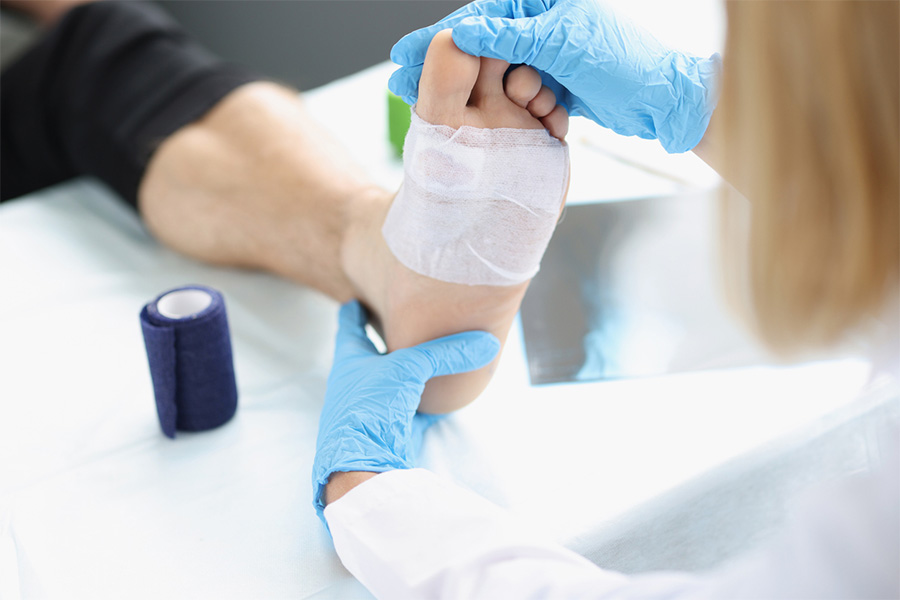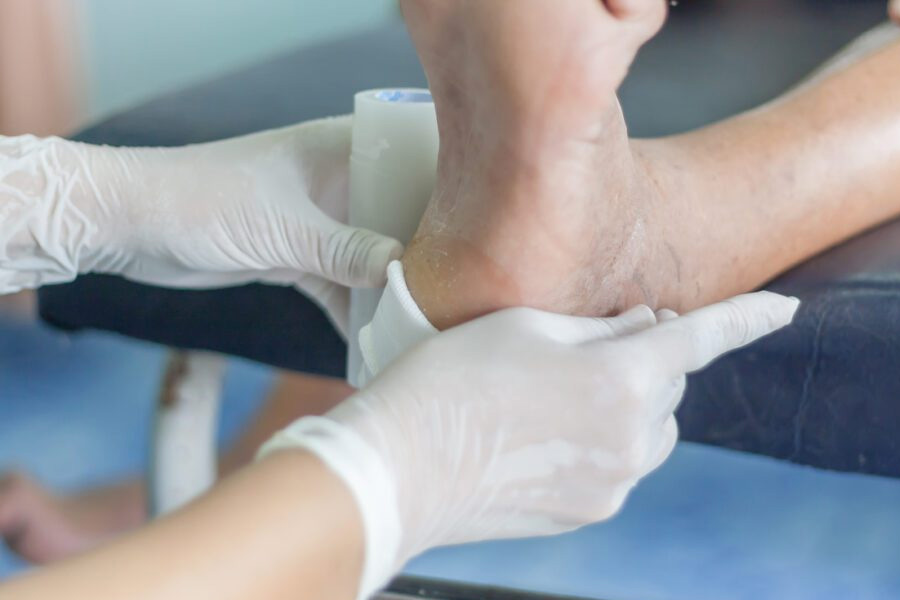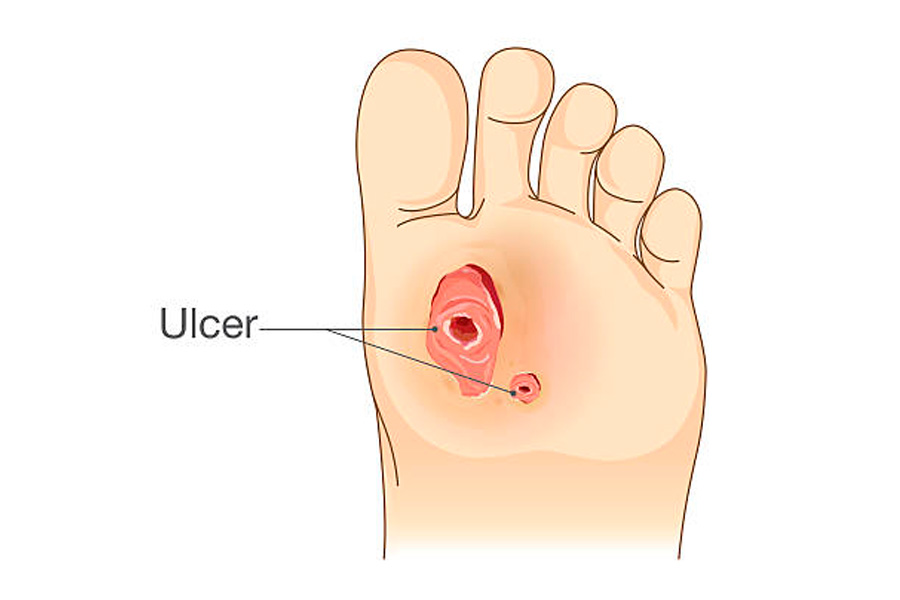Diabetes is one of the most common chronic conditions in the world. About one in 11 adults is living with diabetes, and its prevalence is expected to increase over the next decade.
Diabetes can lead to a variety of complications, including wounds and infections in your feet. Proper foot care is essential for those with diabetes, as any minor cut or wound can lead to serious infections.
Here are seven diabetic wound care tips to help you keep your feet healthy and minimize the risk of injury:
1. Inspect Your Feet Regularly
It’s important to inspect your feet daily for cuts, blisters, redness, or swelling. Look at the top, bottom, and sides of your feet. Also, don’t forget to look at the spaces between your toes. If you have difficulty seeing the bottom of your feet, use a mirror. You can also ask someone else to inspect them for you.
By inspecting your feet regularly, you can detect any wounds as soon as they occur. Then, you can take the necessary steps to prevent any further damage.
2. Keep Your Feet Clean and Dry
Wash your feet every day with mild soap and lukewarm water. Remember, only go for mild soap to avoid any skin irritation. Also, stick with lukewarm water, not hot, to prevent any burning of the skin. Afterward, rinse them thoroughly and dry them with a soft, clean towel.
Pay close attention to the spaces between your toes, as these often become moist and can be a breeding ground for bacteria. It’s important to keep your feet clean and dry to reduce the risk of infection.
3. Wear Shoes and Socks at All Times
Make sure to wear shoes and socks at all times, even when you’re indoors. This will protect your feet from any sharp objects or debris that could cause an injury.
Always wear shoes that fit properly and provide good cushioning and support. Also, make sure that your shoes are not too tight or rub harshly against any part of your feet.
When buying shoes, always make sure that they fit properly and provide adequate cushioning and support. Forgo shoes with a heel higher than two inches, as this can put additional pressure on the feet. Your socks should be made from a breathable material that wicks away moisture. This will help keep your feet dry and reduce the risk of infection.
4. Trim Your Toenails Regularly
Trim your toenails regularly and file them down with an emery board to keep them even. Doing this will help prevent any ingrown toenails that could cause an infection.
When trimming your toenails, make sure to cut them straight across. Don’t round off the edges, as this can lead to ingrown toenails. You can seek assistance from your doctor or podiatrist if you’re unable to trim your toenails yourself.
5. Protect Your Feet from Temperature Extremes
Be sure to avoid extreme temperatures when caring for your feet. Don’t leave them exposed to hot or cold surfaces, such as a heater, open fire, or ice bath.
Also, avoid walking barefoot outdoors. Going out without shoes can expose your feet to sharp objects and debris that could cause an injury.
6. Use Appropriate Foot Care Products
When caring for your feet, only use foot care products that are specifically designed for diabetics. These are formulated to help reduce the risk of injury or infection.
Look for products that contain ingredients such as urea, tea tree oil, peppermint, and aloe vera. In line with this, try to moisturize your feet with a cream or lotion that is especially for diabetics. They will help keep your feet moisturized and reduce the risk of cracks and fissures.
7. See a Doctor Regularly
Make sure to see your podiatrist regularly for an assessment. A regular visit will help ensure that your feet remain healthy and free of any complications. Your doctor can also provide advice on how to care for your feet and prevent problems.
If you’re experiencing any pain or discomfort in your feet, see your doctor right away. Even minor issues can quickly become more serious for people with diabetes. So, it’s important to seek medical attention as soon as possible.
Comprehensive Diabetic Wound Care in Cincinnati, OH
Proper care and maintenance of your feet are essential for people with diabetes. Following these tips will help keep your feet healthy, reduce the risk of infection, and prevent any complications. Make sure to consult your doctor for any advice or questions about diabetic foot care. That way, you can help ensure your feet are in good condition.
Do you need comprehensive diabetic wound care in Cincinnati? You can rely on Cincinnati Foot & Ankle Care. We have a team of highly skilled and compassionate foot and ankle surgeons who can give you the best care. If you want to learn more about our podiatrists and services, you may call our location nearest to you. You can also book a visit with the best podiatrist in Cincinnati using our secure online appointment request form.
We have 18 offices across Southwest Ohio for your convenience. We look forward to helping you manage your condition best!
Share

People with diabetes often experience difficulty healing wounds.




